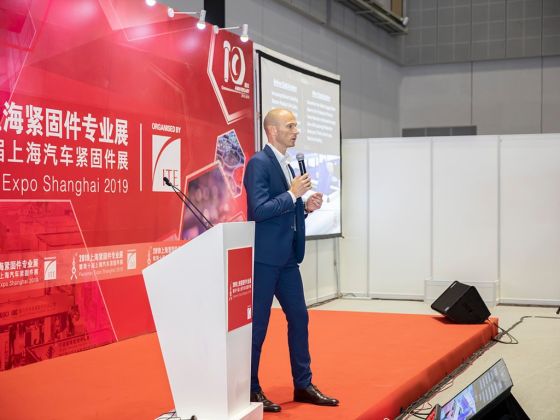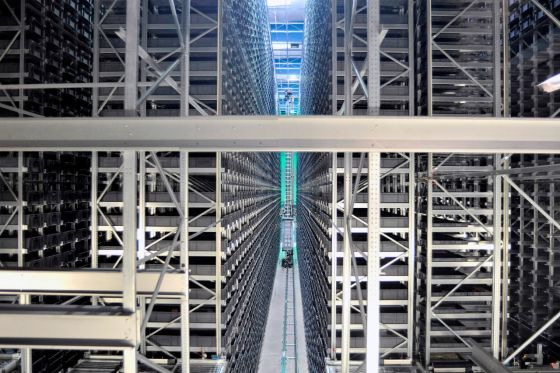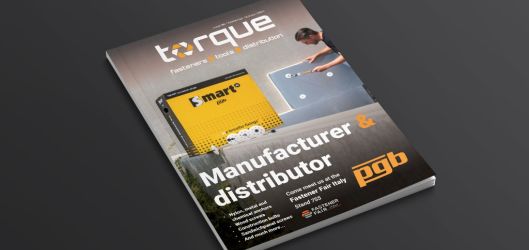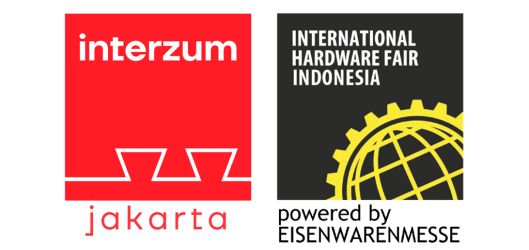
Back in June, Bufab Director of APAC Mathias Torstensson was invited to speak at the popular Fastener Expo Shanghai. To a busy conference room, he presented his take on digitalisation in the C-Parts industry to over 100 fastener execs. For those of us not lucky enough to have been in the room, Torque caught up with Torstensson to hear first hand his take on the challenges facing the fastener industry as well as his thoughts on how speed to market is becoming increasingly important...
At the Shanghai Fastener Expo conference, you addressed some of the modern challenges facing the global fastener industry. I believe you listed ‘digitalisation’ as one of the key challenges - can you take us through that?
Digitalisation puts high pressure upon all industries’ business models. Suppliers becomes service providers and customers become users. We need to transform our core business along the value chain, building the necessary resources and adapting to our customer’s own transformation.
What’s driving the growth of digitalisation?
We always need and want to be relevant for our customers. Our customers are continuously developing and we need to be able to keep up with them and even be a few steps ahead. We want to be the number one choice for our customers and therefore we need to develop our offer, ourselves and our processes. Digitalisation has no self-worth; digitalisation is a way to grow an organisation to be as efficient as possible for the ones the organisation serves – our customers.
...It seems fair to say that digitalisation is an area of importance to Bufab. Can you take us through some of the ways in which Bufab is tackling this? Through ‘Inventory Solutions’ and the ‘New Customer Portal’?
During the past year we have launched a cloud service for our Logistics Solutions; EasyTrack™. EasyTrack provides our customers with a transparent overview of their racks, bins, refilling, orders, drawings and more. The customer can create printable article lists, view different sites and make sure that the same articles are used globally.
In the beginning of 2020 we will launch the first version of our Customer Collaboration Platform - a platform that supports our digital collaboration with our present and potential customers. A platform where we can be transparent with our customer related data as well as show our entire offer when it comes to products and services. There will be functions like product catalogue, E-trade, Customer BI and Project Collaboration and much more.
In terms of other challenges affecting the fastener industry, tariffs is probably a major one. Bufab has operations in countries affected by tariffs, like China, so do you have a perspective on the impact of tariffs on global fastener supply?
We do not spend too much energy on trying to understand why different tariffs are imposed throughout the world, we have no power to influence, thus we accept them as they are and we try to make the best out of it, adapting to the different business environments.
Environmental practices and initiatives have also impacted on fastener production, not least in countries in the APAC region. Have environmental regulations had a big impact on fastener industry in the region? Have most factories now transitioned to more environmental practices?
Well, I guess that depends on how you look at it, some would say that is has been a disturbance to the market of fasteners, I and Bufab however think it is indeed a necessary step towards a more sustainable production and supply chain of fasteners, and I hope that this is only the beginning.

More specifically to Bufab, the group acquired Rudhall Industri earlier this year - I think the statement said that has increased Bufab’s sourcing capabilities in China. Can you tell us more about that?
Rudhäll Industri has since many years a well operating Sourcing Office in China, and obviously Bufab as a group will benefit from their experience and expertise. And on top of that we have during 2019 enlarged our investment in China in terms of Sourcing, to expand by opening up a new Sourcing Office in Ningbo.
What proportion of business does Asia Pacific have on Bufab’s overall business?
In terms of absolute numbers, still smaller than we would prefer, our ambition is to double the sales revenue in a couple of years. In terms of business importance, Asia Pacific is a very important region for Bufab, many of our global customers have production sites spread all over Asia, and as a global provider
it is our duty to serve them with the same attention all over the globe.
Has it been a positive 2019 so far for the region [at time of original publication; Nov 2019]?
Asia Pacific Region has been somewhat a bumpy ride in 2019, affected by trade uncertainties, lower demand in some industries, worsening general business climate etc. All these have had an impact on our performance for the region, in some markets we have seen very minor impact and in some more.
More generally, what’s your view on the global fastener market, taking into account your perspective from Asia?
One point would be that speed to market will only become more important, also for a commodity like fasteners or C-parts. Everything and all industries are moving with an accelerated speed, the total lead time for companies in Europe to get supplies from Asia is way too long, this will become less and less sustainable. There are many ways and options to solve this problem and Asian producers must be on top of that to stay ahead of the game.
This article was originally published in Torque's Nov-Dec 2019 edition. Read the whole magazine in our Archive or apply for a free subscription today.
Read more on the C-parts industry on www.torque-expo.com



